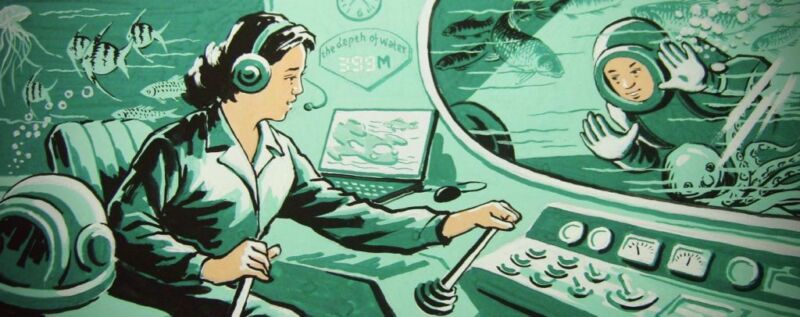

The strange, secretive world of North Korean science fiction
source link: https://arstechnica.com/culture/2023/08/the-strange-secretive-world-of-north-korean-science-fiction/
Go to the source link to view the article. You can view the picture content, updated content and better typesetting reading experience. If the link is broken, please click the button below to view the snapshot at that time.

why dream? —
The strange, secretive world of North Korean science fiction
Unusual and often breathtaking, the genre is relatively unknown in the West.
Andrada Fiscutean - 8/25/2023, 11:00 AM

A plane is flying to the Philippines, gliding above "the infinite surface" of the Pacific Ocean. Suddenly, a few passengers start to scream. Soon, the captain announces there's a bomb on board, and it’s set to detonate if the aircraft drops below 10,000 feet.
"The inside of the plane turned into a battlefield," the story reads. "The captain was visibly startled and vainly tried to calm down the screaming and utterly terrorized passengers."
Only one person keeps his cool: a young North Korean diplomat who has faith that his country will find a solution and save everyone. And he’s right. North Korea's esteemed scientists and engineers create a mysterious anti-gravitational field and stop the plane in mid-air. The bomb is defused, and everyone gets off the aircraft and is brought back safely to Earth.
This story, Change Course (Hangno rǔl pakkura) by Yi Kŭmchǒl, speaks about solidarity, peace, and love for the motherland, displaying an intricate relationship between literature and politics. It was first published in 2004 in the Chosǒn munhak magazine, only to be reprinted 13 years later, around the time North Korea claimed it was capable of launching attacks on US soil.
"Political messages in every North Korean sci-fi can be hardly missed," historian of science Dong-Won Kim, who taught at Harvard University and the Korea Advanced Institute of Science and Technology in South Korea, told me.
AdvertisementThe genre grew under the wings of the supreme leaders. Late dictator Kim Jong-il referenced science fiction books in his speeches and set guidelines for authors, encouraging them to write about optimistic futures for their country.
Stories often touch on topics like space travel, benevolent robots, disease-curing nanobots, and deep-sea exploration. They lack aliens and beings with superpowers. Instead, the real superheroes are the exceptional North Korean scientists and technologists who carry the weight of the world on their shoulders.
These stories are often rich in political tension, featuring "breathtaking confrontations between North Korea and the United States," said Jang Hyuk, a young math graduate who defected from North Korea a few years ago. As in Change Course, North Koreans in sci-fi are typically portrayed as trying to save somebody, while the Americans are the villains who want "to monopolize and weaponize [technology] to dominate the world," he added.
To a Western reader, such plots might seem ludicrous, perhaps designed to boost the confidence of a nation with little contact with the rest of the world. However, exploring them deeper might reveal a more nuanced layer of understanding.
"When I read Change Course, I find myself constantly thinking: If I were watching this same story as a Hollywood movie and the protagonists were Americans, my reaction would be very different," said researcher Benoît Berthelier, lecturer at the University of Sydney, who published several papers on Korean literature. "When you experience familiar plot structures and tropes but with the protagonists and antagonists reversed, there's a distancing effect that makes you question why only certain configurations of good and bad roles feel uncontroversial."
Page:
Recommend
About Joyk
Aggregate valuable and interesting links.
Joyk means Joy of geeK